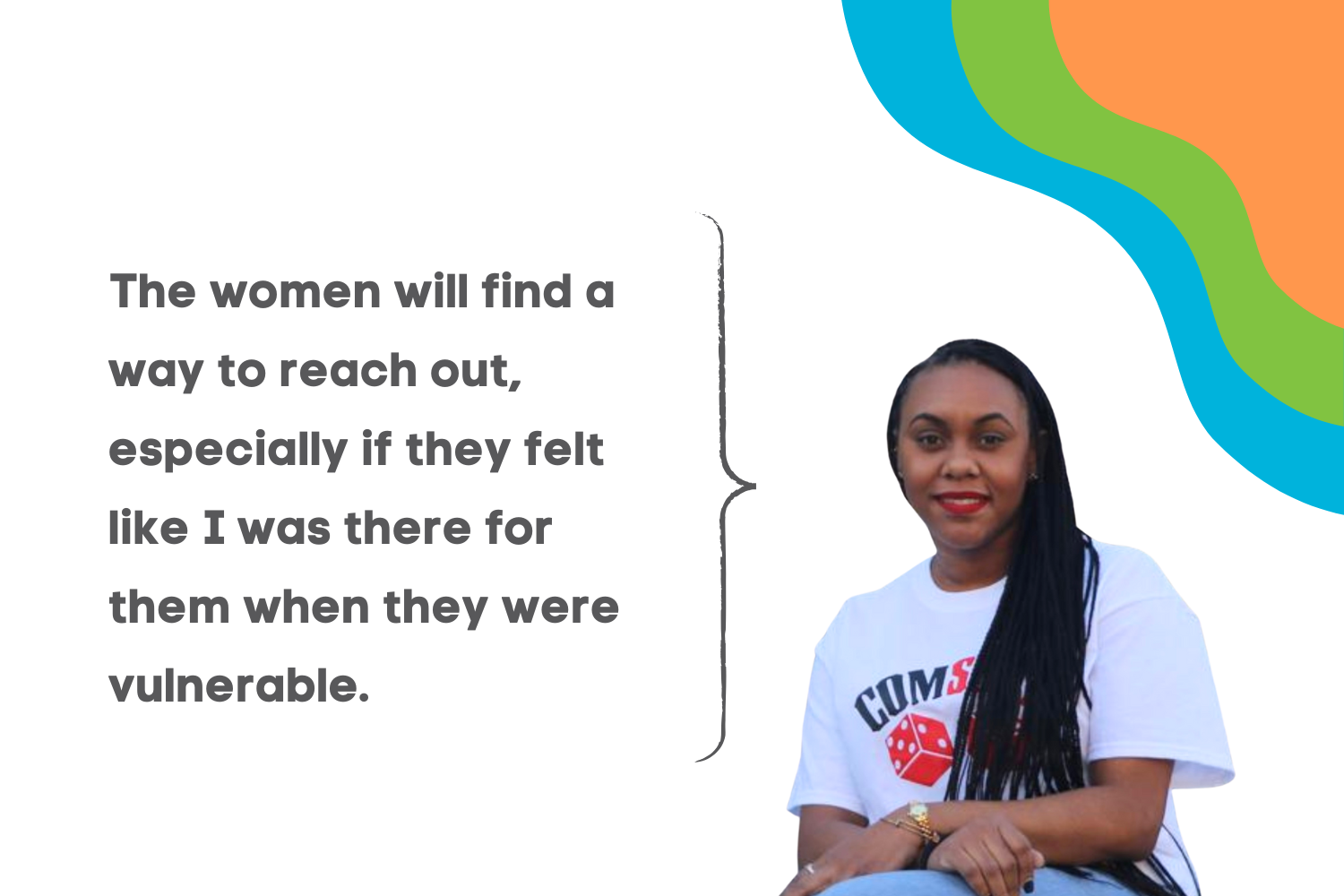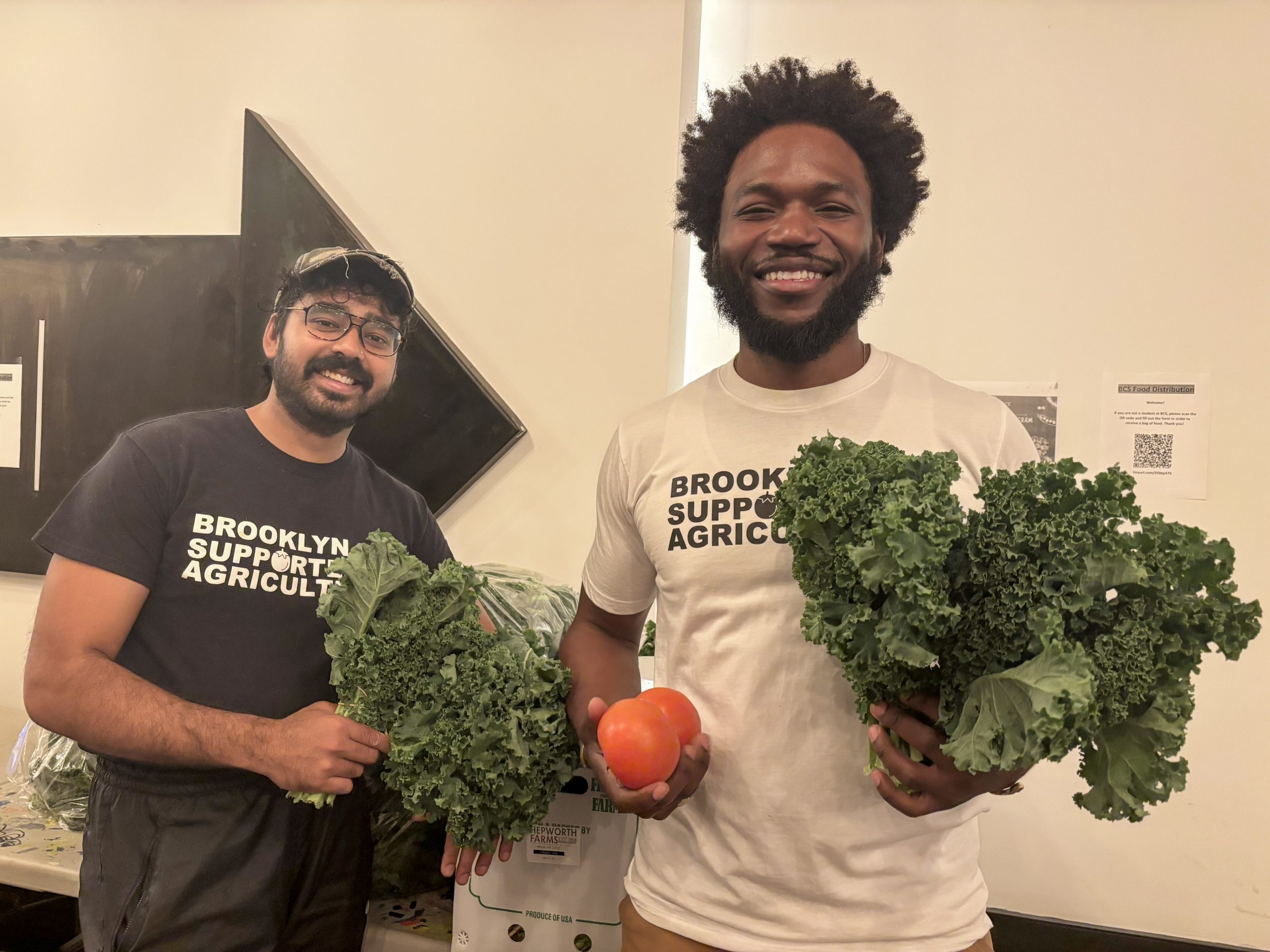Staff Spotlight: Daniela Frien, Young Women’s Shelter

What’s your job title, and how long have you been in your position?
I’m a house manager. I started off, I believe, three and a half years ago. So next year, it’ll be four years here.
What BCS location are you stationed at?
Third Avenue in the Industry City area.
How did you first find out about BCS and about this position in particular?
I used to work at New Horizon Counseling Center. My supervisor there–her name is Kim Darkins–used to work at BCS. That was her part-time job. So she said, “Hey, I could get you a position over there.” That’s how it really started off. She ended up leaving the company, but I stayed on, even in the transitional period. At that point, there were only three of us that were there from the start, and we really didn’t have a director or an assistant director. We had no case managers. It felt right because we didn’t want to leave the girls.
What does your day-to-day routine look like?
As soon as I get in there at four p.m., the first thing I do is check my emails, check everything that’s going on. Then I usually start serving dinner for the girls. We usually have between 10 to 15, or even 20 something. I start out by serving dinner, I do my hourly rounds, I help them with whatever they need. If they have any questions, I submit them and pass them on.
Also, I ensure that by 11 o’clock everybody’s in the building. I do my bed count. Since it’s usually only one house manager there, you’re kind of in charge of everything, so you’re the first point of contact and you’re the last point of contact until they leave, because it’s only going to be you on the security there. Everything from toiletry to whether they have a medical emergency–I’m always on site for everything.
So you have a pretty wide range of responsibilities it sounds like.
We do, because we do the intake as well as incident reports. We’re a small shelter, and there’s just not a lot of staff here. Everyone does a little bit of everything. For example, the director, she does pretty much the job of five people. It’s a common thing for all of us to be very close and involved.
How many people stay at the shelter, and how many full-time staff members are there?
Okay, so we have 39 females right now. We have full capacity. We only have four house managers for all of the shifts. It’s always only one house manager on duty, so that way everybody can get two days off. Then we have the director, the assistant director. I don’t think we have a housing specialist here, but we have a case manager now.
Are you looking to continue expanding your staff?
Ideally, yes, we are, but it’s kind of very difficult at the moment. Ever since the pandemic happened, not a lot of people with F-80 (Certificate of Fitness for Coordinator of Fire Safety and Alarm Systems in Homeless Shelters) apply for the positions. It’s very hard to find reliable staff.
Is your background in social work? What kind of jobs did you have before you came to this one?
This job was supposed to be just a momentary job for me. My background is in marketing relations, so I still do freelancing work in that. This is my stable job at the moment. I do enjoy working in the environment, because the young ladies that come in–they’re really good girls, and they need that extra support. And I was a case manager for six years, so that was my other job. I was juggling two jobs at the same time–management, plus the shelter. Now I’m just working at BCS, but since I do have a background in case management, I can be the first person of contact when [the girls] have a problem. I can steer them in the right direction until I get them the additional assistance that they need.
What have you found to be the most challenging aspects of the job?
The building. We have a pretty old building, so we go through a lot of flooding. We do as much as we can do about it, and we adjust, you know? We make do. I call the director, and she gets a team out there. So that’s the most challenging part. Other than that, I feel like dealing with the residents is not hard because I’ve been here for three years. So we are ready to manage.
Have you built relationships with any of the women who stay at the shelter?
Yeah, absolutely. Sometimes you will check the mail and you get a little card from one of them saying thank you. It’s really nice to see that there’s appreciation. These are women who have been in the shelter and are now living elsewhere and have succeeded. I don’t know how they found me, but they express a thank you for being there for them. It’s very rewarding, to be honest.
Are you able to keep up with a lot of them and figure out what they’ve done after leaving?
Yeah, a few of them I’ve been able to keep up with. One of them–she moved out eight months ago–was just telling me that this is her first Christmas in her apartment. She just got a really, really good job as a supervisor. She was promoted. [The women] will find a way to reach out, especially if they felt like I was there for them when they were vulnerable.
What are some of your favorite things about what you do?
One of my favorite things is just working with my coworkers; we get to share a lot of resources. We all have a background in social service. They were case managers or directors, so they really are able to give me information that I wasn’t privy to before.
You talked about trying to grow the staff at Third Avenue. Are there any other initiatives or plans for the future of the shelter?
The biggest plan right now is to get the building fixed. We are working for the following year to bring more staff on duty. We don’t want to always be so dependent on one person. There should always be at least a few people on the same shift. Right now, we are also filling up the case manager position to help our clients who want to move out and get housing. Next year, we’re going to focus on getting new house managers and get good staff who have the necessary certificates.
Is it only young women in your shelter?
We only care for young ladies between the ages of 18 and 25.
Do many of them have struggles beyond just homelessness, like mental illnesses for example?
We don’t technically care for mental health, but that doesn’t mean that we don’t get young ladies that have mental health problems, especially if they have nowhere else to go. We would take them in until we can get the necessary documents to get them into a facility and cater to that.
Yeah, I’m sure it’s important to know their whole history if you want to be able to provide them with proper care.
Yes. Some of them are being kicked out of their homes, you know? They just started terribly. Providing a lending ear can really take them along. If they’ve had a tragedy in their family, and they are now in a shelter with no family, our social staff becomes like a little family. Some of them were calling us mom and pops. You don’t even have to give back much; just listen to them.
What happens when someone turns 26 and ages out of the system?
We usually let the [Department of Housing Services] know. We had an age-out situation recently with one of the young ladies. She had been here for quite some time because she wasn’t able to keep a steady job. We helped her with paperwork and found her a place to go. Usually we keep their bags, because some of them accumulate things, and they can’t take everything with them at the same time. They can come back and get them.
Top Viewed Posts
Youth Art Programs
Program Spotlight: Day Habilitation
BCS Volunteers Spring into Action for Brooklyn
Recent News

Participant Spotlight: Ann Salmon, PROS
July 16, 2025
Read More
 SUBSCRIBE
SUBSCRIBE 











